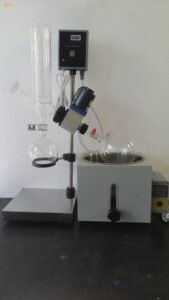The single glass reactor is a versatile and indispensable tool in various laboratory and industrial applications. It is designed to carry out chemical reactions under controlled conditions while providing enhanced efficiency and safety. Whether in research labs or production settings, understanding the features, applications, and benefits of the single glass reactor can significantly impact the success of chemical experiments.

What is a Single Glass Reactor?
A single glass reactor is a closed system typically used for conducting chemical reactions at a laboratory or pilot scale. Constructed primarily from high-quality glass, this equipment is designed to withstand various pressures, temperatures, and chemicals, making it an ideal choice for conducting synthetic, analytic, and developmental reactions. The main structure consists of a reaction vessel, condenser, stirrer, and a heating system, which all work in tandem to control and optimize the conditions of chemical reactions.
One of the key features of the single glass reactor is its transparency, which allows researchers to visually monitor the reaction process. This is particularly useful for reactions that require precise control and monitoring. In addition, the design often includes built-in cooling and heating systems, as well as the ability to maintain a vacuum, providing better control over the reaction environment.
Key Features of the Single Glass Reactor
The single glass reactor is designed with several advanced features that make it highly efficient for laboratory processes:
- High-Quality Glass Construction: Made from durable, heat-resistant borosilicate glass, which ensures long-lasting performance and high chemical resistance.
- Integrated Stirring Mechanism: The reactor is equipped with a motorized stirrer to ensure uniform mixing of the contents, crucial for maintaining consistent reaction conditions.
- Vacuum and Pressure Control: Most single glass reactors are designed to maintain both vacuum and pressure, allowing for a range of reactions, including those requiring low or high pressure.
- Temperature Control Systems: Built-in heating and cooling systems enable precise temperature management, which is vital for reactions that require specific thermal conditions.
- Modular Design: The flexibility of the single glass reactor allows for easy customization. Additional components, such as digital controls or PTFE liners, can be added based on specific requirements.
These features make the single glass reactor an ideal choice for a variety of laboratory applications, ranging from chemical synthesis to pharmaceutical production.
Applications of the Single Glass Reactor
The single glass reactor has numerous applications across various industries, particularly in research and development. Below are some of the most common uses:
- Chemical Synthesis: In organic and inorganic chemistry, the single glass reactor is used for conducting a variety of chemical reactions, including reflux, distillation, and crystallization.
- Pharmaceutical Production: Pharmaceutical companies use single glass reactors to conduct reactions involving the creation of drugs, compounds, and active ingredients under controlled conditions. The reactor’s ability to maintain precise temperature and pressure makes it indispensable for creating high-quality pharmaceutical products.
- Food and Beverage Industry: In this sector, the single glass reactor is often used for extraction processes, such as essential oil extraction, where precision is necessary to ensure quality and purity.
- Environmental Research: The reactor can also be utilized in environmental testing and research, including processes such as water treatment and the development of biodegradable materials.
- Pilot Scale Production: For smaller-scale manufacturing, the single glass reactor serves as an ideal tool for scaling up reactions from the laboratory to pilot production levels.
- Education and Research Labs: Universities and research institutions frequently use single glass reactors for experimental setups that require the precise monitoring of chemical reactions.
Advantages of the Single Glass Reactor
The use of the single glass reactor offers a range of benefits that enhance laboratory productivity and safety:
- Enhanced Control: The integrated heating, cooling, and stirring systems provide researchers with greater control over reaction conditions, ensuring consistent results.
- Easy Monitoring: The transparency of the glass reactor allows for real-time observation of reactions, reducing the need for manual sampling and enhancing safety.
- Cost-Effective: Although the initial cost of a single glass reactor may be higher than simpler alternatives, its durability and versatility make it a cost-effective investment in the long run.
- Safety: The reactor’s design minimizes the risk of contamination and reaction hazards, ensuring a safer work environment for laboratory personnel.
Comparing the Single Glass Reactor with Other Reactors
When choosing a reactor for laboratory use, researchers often compare the single glass reactor with other types, such as double glass reactors or stainless steel reactors. While double glass reactors are also commonly used, they are typically employed for reactions requiring higher thermal control or additional insulation. On the other hand, single glass reactors offer transparency, making them ideal for monitoring and controlling reactions without the need for additional external viewing equipment.
Stainless steel reactors, while more durable and capable of handling higher pressures, lack the transparency that is crucial for monitoring reactions visually. Additionally, the single glass reactor is often more affordable and accessible for many laboratories compared to its metal counterparts.
Purchasing a Single Glass Reactor
If you are considering purchasing a single glass reactor for your laboratory or production facility, it is essential to choose a reliable supplier. EquilRxnLab offers a range of high-quality single glass reactors designed to meet the diverse needs of research and industrial processes. The reactors are available in various sizes and configurations, ensuring that you can find the right fit for your specific applications. Explore the full catalog of single glass reactors on EquilRxnLab’s product page.
Ensuring Optimal Performance and Maintenance
To ensure the longevity and efficiency of your single glass reactor, proper maintenance is crucial. Regular cleaning, checking for any signs of wear and tear, and ensuring that all components are functioning correctly are essential practices. Many suppliers, including EquilRxnLab, offer comprehensive support and maintenance services to help you maintain your reactor in optimal working condition.
For further insights into the capabilities and benefits of the single glass reactor, check out our detailed YouTube channel and follow us on Instagram and Facebook for the latest updates.



